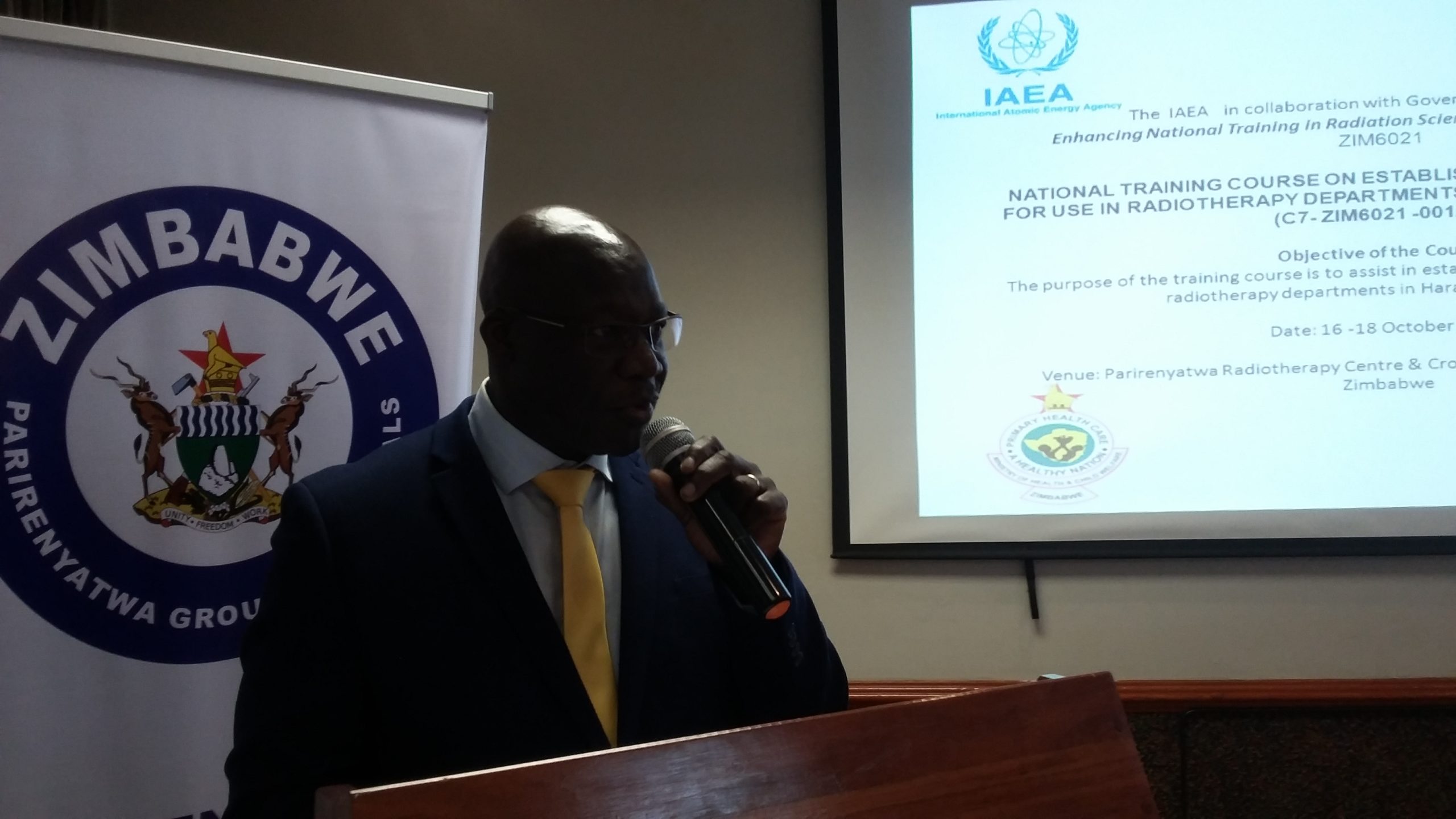By Byron Mutingwende
Zimbabwe is in the process of capacitating radiotherapists with a view of enhancing the use of radiation sciences to improve the management of cancer.
Zimbabwe, through the Ministry of Health and Childcare has roped in the International Atomic Energy Agency (IAEA) experts from South Africa for a partnership in all activities related to improving human health through the peaceful use of nuclear technologies in the country and beyond.
Brigadier General (Rtd) Dr. Gerald Gwinji, the Permanent Secretary of the Ministry of Health and Child Care, while officially opening the National Training Course on “Establishing Clinical Guidelines for the Use in Radiotherapy Departments in Harare and Mpilo” said the Government of Zimbabwe places great importance in the welfare of cancer patients and thus realises the importance of developing guidelines in cancer management.
“This training course comes at an opportune time where Zimbabwe as a nation is on a drive to develop National Guidelines to encompass all aspects of the management of cancer as part of the implementation of our National Cancer Strategy,” Gwinji said.
According to the World Health Organisation (WHO), one in six deaths worldwide were attributed to cancer in 2015. The Resolution 66/2 at the United Nations High Level Meeting was passed where political commitment by Head of States of Member Countries prompted the launch of WHO’s Global NCD Action Plan 2013-2030, where countries are expected to reduce by 25% premature mortality from NCDs, including cancer, by 2025.
“I am happy to announce that the Government of Zimbabwe is committed to fighting cancer and we have shown our commitment through various activities. In 2012 the government in conjunction with the IEA acquired state of the art Radiotherapy Equipment for our 2 centres valued more than $10 million for the treatment of cancer patients. With such an investment in this life saving equipment it is pleasing to know that our health professionals in the field are endeavouring to commit themselves to the development of guidelines to optimise the use of this equipment for the benefit of the patients.
“This guideline development can only improve the quality of cancer treatments that these 2 centres provide in order to match international standards. Taking cognisance of the fact that radiotherapy is not usually used as the sole modality of cancer treatment, we have also committed funds from the AIDS levy to help in procurement of wide range of cancer drugs as well,” Gwinji said.
Recently Zimbabwe was invited to be part of six African nations that are involved in the development and adaptation of National Comprehensive Cancer Network-African Guidelines, which are to be launched at the AORTIC Conference in Rwanda this year. This will result in the country benefiting from reduced chemotherapy drugs sourced from reputable pharmaceutical companies. The Clinton Health Access Initiative contributed towards this endeavour.
Gwinji added that the country has been making steady improvements on manpower development in radiotherapy through training programmes run by the University of Zimbabwe College of Health Sciences, National University of Science and Technology, The School of Radiography, School of Nursing and other educational institutions.
The IAEA was praised as a major, longstanding partner offering training and educational opportunities to Zimbabwe’s radiotherapy health personnel.
“This partnership has resulted in the sustained training of Radiation Oncologists, Medical Physicists, Radiographers and more recently Oncology Nurses. The same local training institutions have also been training ground for the region. This National training course is just one such IAEA educational activity among many in the past that will contribute towards the continuing education of our radiotherapy personnel.”
Dr. Ntokozo Ndlovu, the Chairperson of the Department of Radiology at the University of Zimbabwe’s College of Health Sciences said the training course would equip the trainees with the expertise that will enable them to develop guidelines that will provide clear pathways of management of different cancer whilst being credible, accessible and useful.
“The trainees would be equipped on the aims and benefits of clinical guidelines of radiation including high standards of service delivery, training, quality assurance and budgeting. They will be taught about the pitfalls and challenges associated with guidelines, and how to avoid them as well as the specific requirements of a guideline for practical use in a radiotherapy department,” Ndlovu said.






